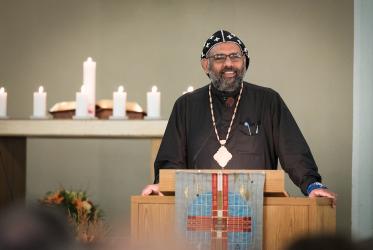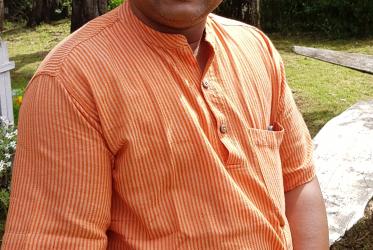Displaying 1 - 6 of 6
26 November 2018
Paving the way for ecumenical studies, learning English in Bossey
24 September 2018
Dr Samuel George: “Ensure all are included"
12 June 2018
Christians in China warmly receive WCC delegation
12 January 2018



